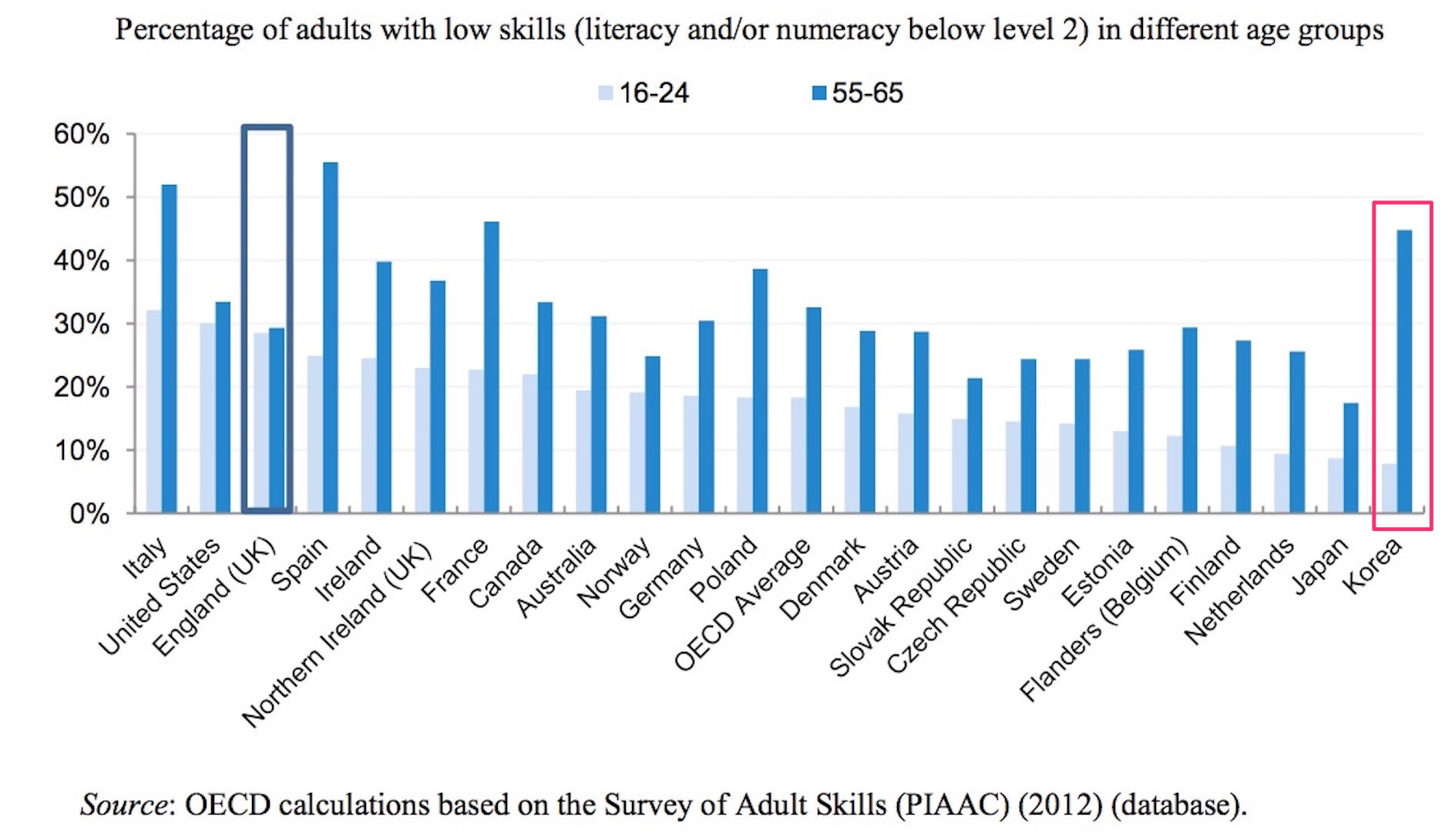Sep 8 – International Literacy Day
5 minute readWhat do you think of when you hear the words International Literacy Day?
Programs in Nepal empowering women by teaching them to read?
Programs in Africa helping children who can’t attend school?
How about programs in your own country?
We’re a highly developed nation. Literacy isn’t an issue here. Is it?
Maybe some of these numbers might surprise you:
Children
- 1 in 3 British children do not own a book of their own.
- In an assessment of teenage literacy in 23 OECD countries, the UK placed last and the US third-last.

- 65% of 10-year-olds in the US cannot read at the expected level, contributing to 8,000 children dropping out of high school each day.
- 27% of 15-year-old European boys cannot read well enough to understand their school textbooks.
Adults
- Low literacy rates cost the US $225 billion or more each year in terms of workforce non-productivity, crime, and loss of tax revenue due to unemployment. This figure is estimated to be €350 billion in the EU.

- In the most deprived areas of the UK, 35% of adults are unable to read at a level expected of 11-year-olds.
- 37% of people who rate their health as “very poor” in the UK are functionally illiterate, as opposed to 11% who have these skills.
- 44% of adult Australians lack the basic skills for everyday life.
Importance of Literacy Skills
- If every child left primary school in the UK with the reading skills they need, the UK economy could be more than £30 billion bigger by 2025
- Higher literacy rates lead to more social mobility, increased self-esteem, better health, greater empowerment and higher community engagement.
- “The single most significant factor influencing a child’s early educational success is an introduction to books and being read to at home prior to beginning school”
And so today is truly of international importance. Just don’t think that “international” means “countries other than my own”.
There is a silver lining
The amazing thing about literacy skills is that they can be learnt. This sets them apart from most other factors impacting social mobility and inequality.
Through good governance, investment and action by organisations such as The National Literacy Trust, Reading is Fundamental and The Australian Literacy and Numeracy Foundation, it is possible to achieve tangible progress in a manner seldom possible for a field with such wide-ranging impact.
For an example of what tangible progress looks like, South Korea provides a great model. South Koreans aged 55-65 rank 21 out of 23 OECD countries for basic skills. Those aged 16-24 rank first out of those 23 countries. Here’s a country which in the space of a couple of generations has drastically improved their population’s basic skills.
Make the world a better place
Overall, amazing progress is being made with literacy rates worldwide - internationally if you will. In light of this, it is particularly important that we do not overlook basic skills issues at home.
The extent and mere existence of the literacy gap in our countries is shocking given society's advances. Charities such as those mentioned above are doing amazing work to close the gap and raise awareness of these fundamental issues.
We encourage you to support them, as we do, to raise awareness and skills in our countries for the good of us all.
Literacy Charities We Support:

Sources
With such large studies in play, it is inevitable that the available data is not always as up to date as we'd like. In all instances, I've taken the most recently-available data. Likewise, with such large population numbers in play, the measurable progress that is being made is not being made at a pace which would render any of source data redundant.
- 1 in 3 British children do not own a book of their own.
- In an assessment of teenage literacy in 23 OECD countries, the UK placed last and the US third-last.
- 27% of 15-year-old European boys cannot read well enough to understand their school textbooks.
- This figure is estimated to be €350 billion in the EU.
It's worth noting that the financial impact numbers are obviously extremely hard to quantify and indeed may not be quantifiable. As stated here regarding the financial impact on the UK economy:
Research for the charity National Numeracy suggested that poor numeracy skills cost the UK around £20 billion a year. But it's so hard to measure that the research said the range could be anywhere between £6.7 billion and £32.6 billion — or outside this range altogether. Other research by KPMG has suggested a lower figure: anywhere up to £2.4 billion a year.
- 44% of adult Australians lack the basic skills for everyday life.





